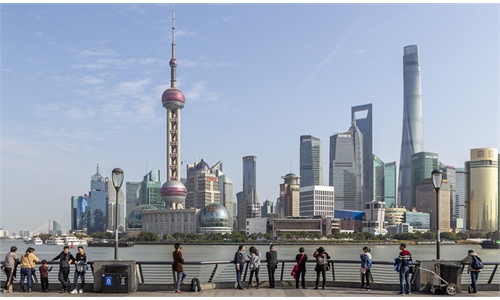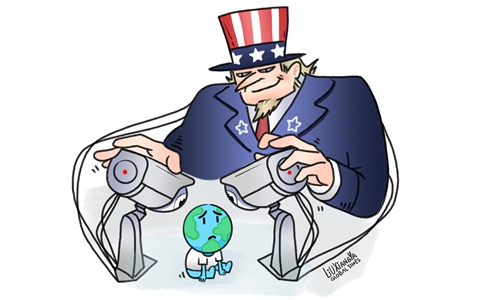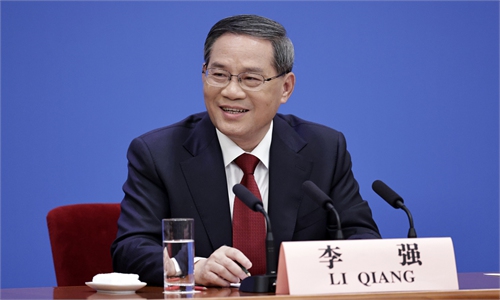
Illustration: Chen Xia/GT
The latest statements of the US and Chinese defense chiefs in Singapore seem to suggest the latest positions of the two countries on the changing situation in the world and the region, as well as on the "ruling order" behind them. Washington insists on a new order that is based on a new and closer system of alliances, history may show that it is just another attempt to upgrade the exclusive American system of values and rules, especially at a time of profound changes in world politics.
While there is no need for people to overreact to the recent statements on the Indo-Pacific strategy and the world order by US officials, considering the timing, the "reinterpretation" and "repositioning" of the "world/regional order" by the Americans deserves serious attention.
The US is already "renewing and deepening alliances and partnerships," "weaving them together," "building new coalitions," and "bringing old and new coalitions together" to address global challenges. The US Defense Secretary Lloyd Austin's statement in Singapore a few days ago is probably the latest to echo these positions and initiatives.
Through a brief review of US foreign policy since the beginning of the 20th century, we may find that it has consistently been the goal of US foreign policy "to build a new world order," and so far there have been roughly three attempts.
The first attempt was the idealistic idea of using the League of Nations to maintain the stability of the international community after World War I, put forward by then-US president Woodrow Wilson. The second attempt was the idea of using cooperation among great powers as the basis for the UN to ensure the stability of the international community after the end of World War II, put forward by then-US president Franklin Roosevelt. Then, the third attempt came after the end of the Cold War. This war led to dramatic changes in the world and many regions, which brought both the fall of the Berlin Wall and the outbreak of the Gulf Crisis, and subsequently, the US designed a new post-Cold War world order.
Following this above historical lineage and logic, the drive behind the Biden administration's attempt to abandon or "break" the post-Cold War world order and envision or "build" a new world order per the US vision and interests becomes clear.
From the perspective of the US political elite, the rapid evolution of the world situation over the past three decades, and particularly some structural changes within the international system in the past 10 years or so (including, but not limited to, China's extensive participation in the international system and its rapid rise within this system), are constantly "depleting" US strategic and policy resources. The crises and challenges mentioned in Austin's speech all seem to have accumulated to the extent that they may have already significantly shaken the fundamentals of the system and the order.
Then, at least one thing remains clear: strengthening US leadership around the world based on the revitalization and growth of US national power has always been a goal of US foreign policy. Furthermore, there seems to be no other path to realize this but to "break" the old order and "build" a new one, if the old one does not align with American values and interests. So, what kind of new world order will the US strive to build in the coming years or decades? This will be a new and extremely important topic to follow in international politics.
In any case, the goal, power, and will of the US to "break" and "build" the world order cannot be underestimated. Like it or not, when the US decides to do so, many countries, especially the US' allies, must find ways to adjust and adapt.
For all these countries, whether they are other Anglo-Saxon members in the Five Eyes Alliance, or regional key allies like South Korea and Japan in East Asia, they will have to choose how they adjust and adapt fundamentally based on their core, pure national interests. Perhaps to a considerable extent, for example in East Asia, we will witness a period in which the old order is being deconstructed and a new one is crying out to be created.
When the US and China are unfortunately locked in a "strategic competition," what kind of world and regional order we need is not only a concern of the US, but a common concern of all nations. In a world full of diversity, it is "inclusive" rather than "exclusive" institutional arrangements that can truly sustain world and regional peace, stability, and prosperity in the long term. Even if the US insists on exclusively leading the establishment of a new world order, the fundamental reality of world diversity can never be avoided.
The author is the Deputy Director and Senior Fellow of the Center for American Studies of Beijing-based think tank Global Governance Institution. opinion@globaltimes.com.cn



